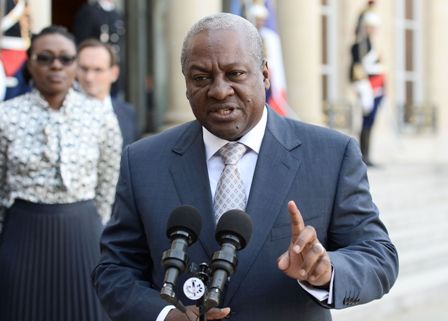Former President John Dramani Mahama has joined the chorus urging the government to submit the Lithium agreement for Parliamentary scrutiny, expressing confidence in lawmakers’ ability to scrutinize the deal effectively.
During a visit to Agona Asafo, Mahama emphasized the importance of parliamentary review.
He stated, “The lithium agreement must go to Parliament. When it gets to Parliament, I trust that our MPs will look into it and give Ghana a good deal.”
The Minority in Parliament, led by John Jinapor, had already demanded Parliamentary scrutiny of the government’s 15-year mining lease with Barari DV Ghana Limited for lithium mining in Ewoyaa to the House for approval.
Jinapor cited Article 268 of the 1992 Constitution, stating that such agreements require prior parliamentary approval.
Jinapor assured the public that the Minority would meticulously review the agreement, emphasizing, “We will seek the guidance and the involvement of civil society, and we will speak to important personalities including former Chief Justice, Justice Sophia Akuffo.”
In response to these calls, Minister of Lands and Natural Resources, Samuel Abu Jinapor, hinted at seeking parliamentary approval for the agreement.
He stressed the importance of parliamentary endorsement for the contract to be fully valid, stating, “Suffice for me to point out that it is the first time in the history of our country that we have successfully negotiated for 10 per cent royalties for any mineral.”
The Lithium agreement grants a 15-year mining lease to Barari DV Ghana Limited, a subsidiary of Atlantic Lithium Limited, for lithium extraction in Ewoyaa.
The government aims to ensure optimal benefits for Ghana, including increased royalty rates, state and Ghanaian participation, and value addition to the mined mineral.
Lithium, a crucial component in lithium-ion batteries, plays a significant role in the green energy transition, contributing to efforts to reduce carbon emissions and combat climate change.
Ghana’s move to mine and process lithium locally marks a departure from the traditional export of the mineral in its raw state.




